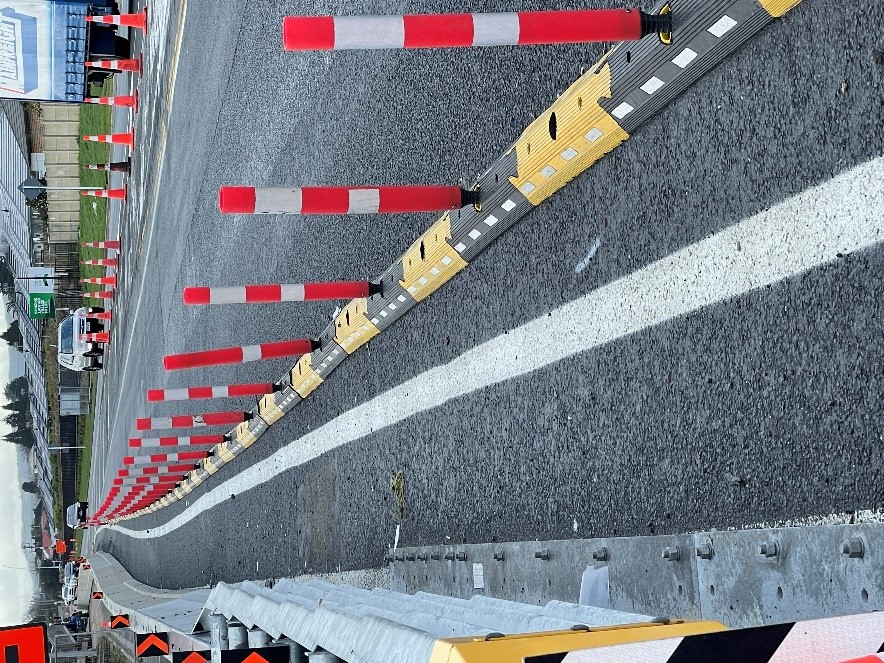Award Winning Airport Project
03/09/2021

Project Fast Facts
- Over 55,000m2 was milled and asphalted.
- 12,000 tonnes of asphalt used
- 1.8 Million Bottles were recycled, turned into sand and used as an alternative to virgin aggregate.
- 330,000 printer cartridges were used as alternative asphalt binder product.
- Use of alternatives and onsite plant saved 70,000 km in haulage.
- 45 project staff (Downer and subcontractors)
- 36 nights worked to complete the project
- $7 Million project cost
- Winner of the CCNZ 2019 Project over $5m
- Winner of the New Zealand Airports Sustainability Project of the Year 2019
Located at Sir Henry Wigley Drive, Frankton, Queenstown, New Zealand. Queenstown Airport is the fourth busiest airport by passenger numbers. It is a key gateway to the lower South Island that is fundamental to enabling the tourism growth that is closely linked to the region’s social and economic success.
Downer was engaged by Queenstown Airport Corporation (QAC) as the head contractor, responsible for:
- Project management and successful delivery of all project objectives
- Design and implementation of asphaltic mixes
- Design and implementation of pavement strengthening mixes.
This project of 50,000sq airport apron resurfacing mill and overlay operation, involved the removal of the existing airport apron pavement and replacing at Queenstown Airport this with varying depths of EM2 and polymer modified AC14. Works also included the installation of new Aeronautical Ground Lighting (AGL) infrastructure including transformer chambers, conduit ducts, light bases and Movement Area Guidance (MAG) signs adjacent to the taxiways.
What sets this project apart is the new technologies that Downer brought to and with the enthusiastic support of QAC, to deliver a step change in sustainable pavement construction. We used innovative and sustainable alternatives to traditional asphalt mixes, using recycled toner cartridge residue (this product is known as TonerPave) and sand derived from crushed, recycled glass bottles. TonerPave and Beer Bottle Sand replaced traditional non-renewable aggregates with no detrimental impacts on the quality of the asphalt material at all. This innovative approach demonstrated how sustainable construction methods could help preserve New Zealand’s natural non-renewable resources.
By repurposing glass bottles and toner cartridge residue, we proactively reduce waste products going to landfill. We conceived the beer glass sand initiative from our relationship with DB Breweries, who highlighting the issue that 30% of glass, amounting to approximately 60,000 tonnes, was too contaminated to recycle and went to landfill. We resolved this issue, by taking the waste glass, decontaminating it and crushing it to a size that is acceptable for asphalt production. For this project, we used 1.5 million bottles to create 235 tonnes of beer bottle sand. Similarly, our use of toner residue, to replace a portion of the bitumen, contributed to reducing the 300 tonnes of waste toner produced in New Zealand every year. For this project we used 330,000 printer cartridges to use the residue as a partial bitumen replacement.
To ensure the airport remained operational during the project, the contract team worked closely together with the QAC to implement an intensive surfacing programme over 36-night shifts. After each shift the apron was opened to aircraft operations. The key challenge in achieving this was that the newly laid asphalt was cool enough to withstand aircraft movements and that the apron area was safe and free of any Foreign Object Debris (FOD) so that the airport could be safely opened to normal operations and handed back to the client after each shift.
Queenstown Airport | Runway widening and overlay 2016
Categories
Related articles
-
 19/04/2023
19/04/2023Reinforcing Winton's Asphalt: A Journey to Better Roads
Read more -
 01/03/2023
01/03/2023Ruby Bay Slip - Tasman
Read more -
 13/10/2022
13/10/2022Improving local connectivity with temporary cycle ways
Read more -
 13/10/2022
13/10/2022Downer Broader Outcomes Programme Success
Read more -
 02/12/2021
02/12/2021Taupo Lakefront Emergency
Read more -
 07/09/2021
07/09/2021A Career Pathway Journey Case Study – Customer Service Manager, Sandy Kaiwai
Read more -
 07/09/2021
07/09/2021Career Pathway Journey Case Study – Area Supervisor, Tracy Evans
Read more -
 06/09/2021
06/09/2021Creating the Stage for the 36th Americas Cup
Read more





